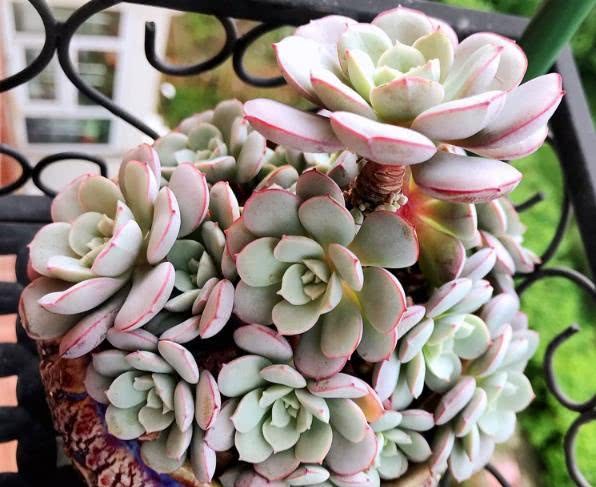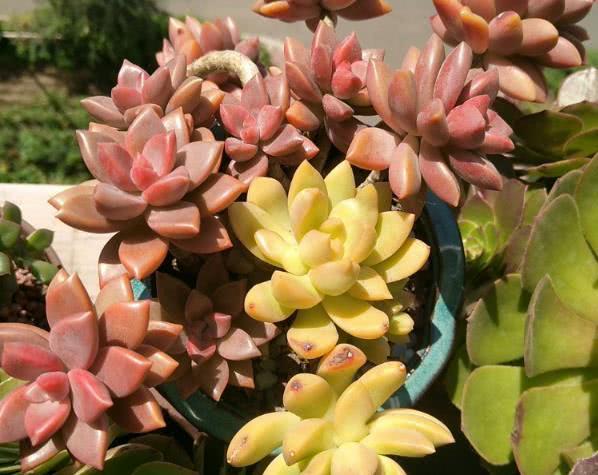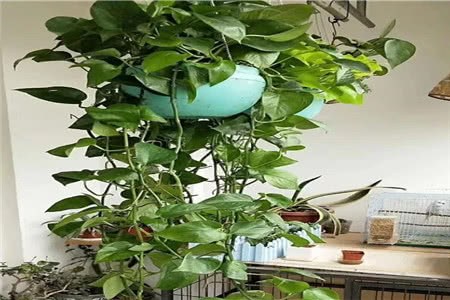During the growing period of succulent plants, proper fertilization can make succulent plants more prosperous.

During the growing period, it is the best time for succulent plants to apply fertilization. if you do a good job of fertilizing, succulent plants can grow more prosperous during the growing period. in fact, it is also very suitable for making rotten leaf soil for succulent plants because of the high temperature and faster fermentation in summer. the fallen leaves collected, a layer of withered leaves piled up, and then poured with Amoy rice water, the production was completed in about 2-3 months.
Spring should provide enough nourishment for succulent plants, because we have to control the water and shade the meat in summer, and the succulent plants that do not grow well in spring will die for various reasons during this period. So we need to fertilize succulent plants in spring. No matter whether it is chemical fertilizer or organic fertilizer, we must apply thin fertilizer frequently. A small amount of water-soluble fertilizer is added to each watering. Organic fertilizer can be buried in a thin layer at the bottom of the basin when changing pots, and slow-release fertilizer can be mixed or shallowly buried not far from the root system. In this way, the nutrients conducive to growth are also absorbed in the process of absorbing water by the root system.
Generally, fertilization is carried out in the growing period and flowering stage, once a month, along with watering, until the seed pods are mature. Generally, it should be carried out in the morning or evening on a sunny day. In addition, individuals who need to control the flowering time and coordinate the flowering time can apply less or not. Plants newly planted in the pot, those with poor growth, those with root injuries, those with mouth injuries in stems and leaves, and self-root cultivated plants that have been all ferruginous after being damaged by red spiders should not be fertilized.
Organic fertilizer must be fully mature before it can be used. Seedlings newly unearthed should not be fertilized within a month. However, if meat lovers are really worried about their succulent malnutrition, they can use rice washing water to water succulent plants, which contains nitrogen, phosphorus, potassium and other trace elements, which is a mild compound fertilizer that does not hurt the roots, or put a few slow-release fertilizers on the surface of the basin soil.
Nitrogen, mainly to promote trees to flourish, increase chlorophyll, strengthen vegetative growth; too much nitrogen fertilizer will lead to soft tissue, long stems and leaves, vulnerable to diseases and insects, and reduced cold tolerance; lack of nitrogen fertilizer will lead to small plants, yellow-green leaves, slow growth and can not bloom. Nitrogen mainly comes from nitrogen in the air and dissolves in Rain Water through oxidation. If Rain Water drenches too much, the succulent plant will grow too much.
In general, it is better not to fertilize succulent plants for the first time. Because succulent plants are not very fat-eating, the trace elements in the general soil can also be dealt with. Fertilization is often based on liquid fertilizer, which has the same side effects as improper watering. The main reason is that raising succulent plants is most prone to the mentality of pulling out seedlings to encourage and eager for success. After all, succulent plants have their unique physiological characteristics, although we can change the local environment to a certain extent to improve their growth rate, but we can not fundamentally change them, otherwise they are bound to fail.
Here is a gathering place for succulent plant lovers, sharing succulent maintenance skills, welcome to follow and exchange.
- Prev

What's the problem when succulent plants move out to bask in the sun and soften their leaves?
If it is a mild sun in the morning or evening, and the meat has not been watered in recent days, it should be a normal phenomenon, indicating that succulent plants are short of water. After the temperature of the soil in the basin drops, you can pour some water on the succulent plant.
- Next

The green pineapple runs for 10 meters like this.
Green pineapple is a very common flower. If you want to raise it well, you still need some real kung fu if you want to raise it for more than ten meters. Let's take a look at how to raise it. 1, watering some flower friends can not control their own hands, idle nothing to water, resulting in accumulation in the basin.
Related
- Wuhan Hospital Iron Tree Blooming Result Was Instantly Frightened by the Gardener Master
- Which variety of camellia is the most fragrant and best? Which one do you like best?
- What is the small blue coat, the breeding methods and matters needing attention of the succulent plant
- Dormancy time and maintenance management of succulent plants during dormancy
- Minas succulent how to raise, Minas succulent plant pictures
- What are the varieties of winter succulent plants
- How to raise succulent plants in twelve rolls? let's take a look at some experience of breeding twelve rolls.
- Attention should be paid to water control for succulent plants during dormant period (winter and summer)
- Watering experience of twelve rolls of succulent plants
- Techniques for fertilizing succulent plants. An article will let you know how to fertilize succulent plants.

